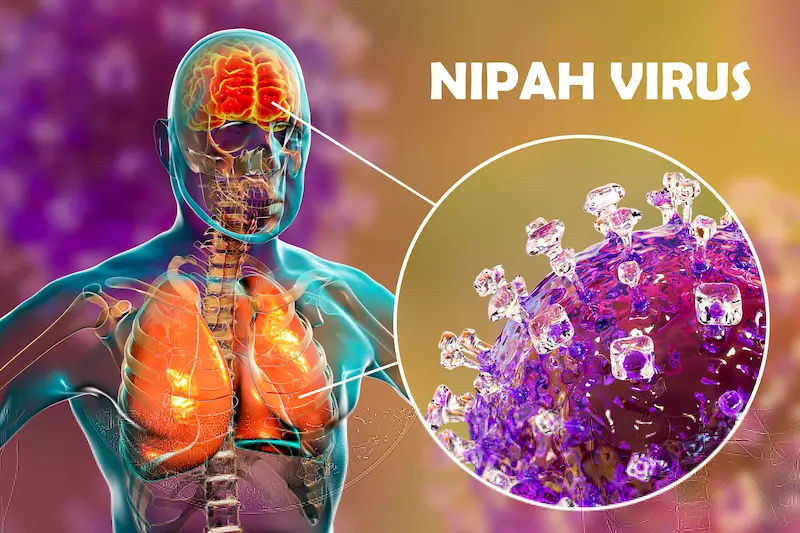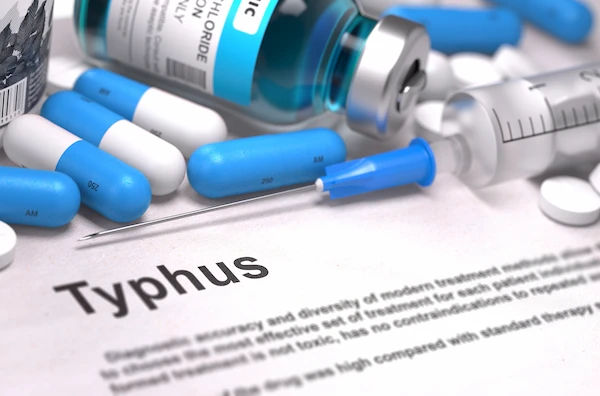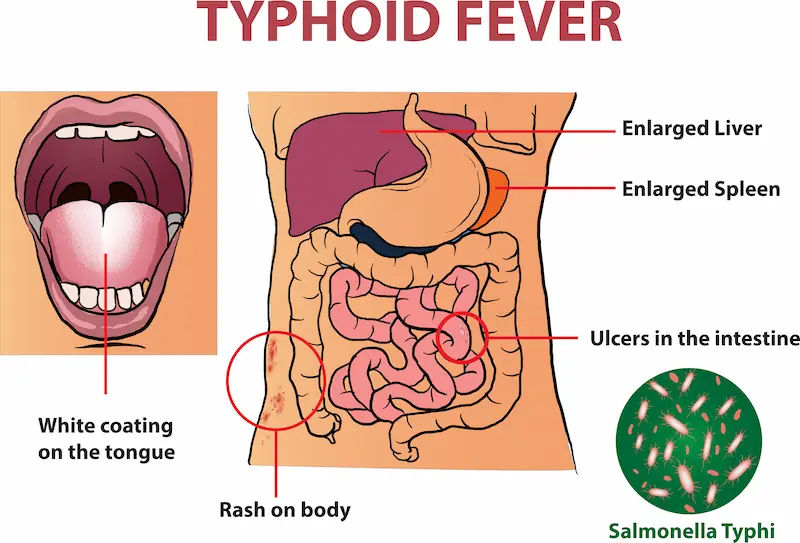How to Reduce Fever Without Medicine?
Learn how to reduce fever naturally. Discover home remedies, hydration tips, and comfort measures for effective relief.

Written by Dr. Rohinipriyanka Pondugula
Reviewed by Dr. J T Hema Pratima MBBS, Fellowship in Diabetes Mellitus
Last updated on 13th Jan, 2026

Fever, characterised by a body temperature above the normal range of around 98.6°F (37°C), is often a sign that your body is fighting an infection or illness. While fevers are generally self-limiting and part of the body’s natural defence mechanism, they can be uncomfortable and concerning, especially if the temperature rises significantly. While fever-reducing medications like acetaminophen or ibuprofen are commonly used, many people prefer to manage fever naturally without relying on over-the-counter drugs. In this article, we will explore safe, effective ways to reduce a fever without medicine, focusing on 6 natural remedies and simple techniques that can help bring relief to both adults and children.
Understanding Fever and Its Causes
Fever itself is not a disease but a symptom of an underlying condition. It is usually the body’s response to infection caused by bacteria, viruses, or other pathogens. However, it can also result from other factors like overheating, certain medications, or inflammation.
Typical fever causes include:
Viral infections: Such as the flu, common cold, or viral fevers.
Bacterial infections: Like strep throat or pneumonia.
Heatstroke: Excessive heat exposure.
Inflammatory conditions: Like rheumatoid arthritis.
While a mild fever can help your body fight off infections, a high fever or prolonged fever might indicate a serious condition, which is why it’s important to monitor symptoms closely.
1. Focus on Hydration
One of the first and most important steps to take when managing a fever is ensuring that you stay hydrated. Fever causes the body to lose fluids, which can lead to dehydration, making the fever worse and potentially causing further complications.
How to stay hydrated:
Drink plenty of water, as it helps cool down the body and supports overall bodily functions.
Electrolyte drinks like sports drinks, coconut water, or oral rehydration solutions can help replenish lost salts and minerals.
Clear broths or herbal teas like chamomile or peppermint are gentle on the stomach and also provide hydration.
Ensure to sip fluids regularly, as drinking too much at once may cause discomfort or nausea.
2. Methods to Lower Body Temperature
Cool Compress: One of the most effective ways to reduce a fever without medicine is by using cool compresses. A cool, damp washcloth applied to areas like the forehead, neck, wrists, or ankles can help bring down your body temperature. Be sure not to use cold water, as this could cause shivering and actually raise your temperature.
Lukewarm Bath or Sponge Bath: Taking a lukewarm bath can help lower your body temperature. Avoid using very cold water, as it may cause your body to counteract by generating more heat. Alternatively, you can sponge your body with a washcloth soaked in lukewarm water.
Fan Usage: Lightly fanning your body can promote evaporative cooling, helping to reduce the fever. A gentle breeze directed at your skin can help release heat more efficiently from the body.
3. Wear Light and Comfortable Clothing
When trying to reduce a fever, it's essential to avoid overheating by wearing light, breathable clothing. Avoid piling on too many blankets or heavy clothes, as they can trap heat and raise your body temperature. Instead, opt for loose-fitting cotton clothes, which are comfortable and allow for better airflow.
In cold environments, be sure to adjust the room temperature to prevent shivering, which can increase body heat.
4. Rest and Relax
While it may be tempting to go about your day as usual, the most important thing your body needs when battling a fever is rest. The immune system works more efficiently when the body is at rest, and this allows your body to direct energy toward fighting the infection causing the fever.
Tips for restful recovery:
Sleep: Aim for 7-9 hours of sleep per night to help your body repair itself.
Relaxation techniques: Consider light stretching, yoga, or deep breathing to help reduce stress and promote relaxation.
5. Use Natural Remedies to Manage Fever
Several natural remedies have been used for centuries to help manage fevers and improve comfort without the need for medication.
Ginger: Ginger is a powerful anti-inflammatory herb that helps induce sweating, which can naturally lower body temperature. Ginger tea made by steeping fresh ginger slices in hot water can provide relief. Make sure to drink the tea while it’s still warm to experience the full benefits.
Peppermint: The menthol in peppermint has cooling properties that help in reducing fever. Peppermint tea or inhaling the scent of peppermint oil can be soothing and effective in lowering a fever.
Lemon Balm: This herb is known for its calming properties and can help reduce fever while promoting rest. You can make lemon balm tea to consume or apply diluted lemon balm essential oil to your temples and neck for relief.
Garlic: Known for its antimicrobial properties, garlic can boost the immune system and support the body’s healing process. Adding fresh garlic to soups or broths is an easy and effective way to incorporate it into your fever management routine.
6. Eating Light and Nutritious Foods
When you have a fever, your appetite may decrease. However, it's important to eat light, easily digestible foods to keep your energy levels up and provide your body with the nutrients it needs to fight off the infection.
Recommended foods for fever:
Broths and soups: These not only provide hydration but are rich in nutrients like vitamins and minerals that help support the immune system.
Fruits: Particularly those high in vitamin C, such as oranges, berries, and kiwi, can help boost your immune response.
Plain rice, toast, and crackers: These are easy to digest and can help provide energy without overwhelming your digestive system.
Avoid heavy or greasy foods, as they can be hard to digest and may worsen feelings of nausea or discomfort.
Consult Top General medicine specialist
When to Seek Medical Attention
While most fevers can be managed at home, there are certain circumstances in which you should seek medical attention, especially if the fever is severe, persistent, or accompanied by other worrying symptoms.
Seek medical care if:
Your fever exceeds 103°F (39.4°C) or persists for more than 3 days.
The fever is accompanied by confusion, severe headache, difficulty breathing, chest pain, or a rash.
Your child is under 3 months old and has a fever, or they have a fever above 100.4°F (38°C).
You are unable to stay hydrated or are showing signs of dehydration.
These could be signs of a more serious infection or condition that requires medical intervention.
Conclusion
Managing a fever without medicine can be possible using simple home remedies and self-care strategies. Hydration, cooling techniques, appropriate clothing, and natural remedies can help provide comfort and promote recovery. However, it’s crucial to monitor your symptoms closely and seek professional medical help if the fever becomes severe or lasts longer than expected.
Remember, while a fever can be uncomfortable, it is often a sign that your immune system is actively fighting an infection. By using these methods, you can help your body recover more naturally and may reduce the need for medications when possible. Always listen to your body and ensure you're taking the necessary steps to rest, hydrate, and support your immune system.
Consult Top Gastroenterologist
Consult Top General medicine specialist

Dr. Anand Misra
General Physician/ Internal Medicine Specialist
14 Years • MBBS, DNB
Mumbai
Apollo Hospitals CBD Belapur, Mumbai

Dr. Aakash Garg
Gastroenterology/gi Medicine Specialist
12 Years • MBBS, DNB (Medicine), DrNB (Gastroentrology).
Bilaspur
Apollo Hospitals Seepat Road, Bilaspur
(150+ Patients)

Dr. Ashmitha Padma
General Physician/ Internal Medicine Specialist
5 Years • MBBS, MD Internal Medicine
Bengaluru
Apollo Hospitals Jayanagar, Bengaluru

Dr. R Gopakumar
Internal Medicine/ Covid Consultation Specialist
31 Years • MBBS, MD(general medicine
Angamaly
Apollo Hospitals Karukutty, Angamaly
(25+ Patients)

Dr. Pallavi Patekar
General Physician/ Internal Medicine Specialist
11 Years • MBBS, DNB ( Gnternal Medicine), FCCCM Critical Care
Mumbai
Apollo Hospitals CBD Belapur, Mumbai
(25+ Patients)
Consult Top Gastroenterologist

Dr. Lekkala Rajesh
Gastroenterology/gi Medicine Specialist
12 Years • MBBS, DNB Internal Medicine DrNB Medical Gastroenterology and Hepatology | Medical Gastroenterology
Secunderabad
Apollo Hospitals Secunderabad, Secunderabad
(75+ Patients)

Dr. Aakash Garg
Gastroenterology/gi Medicine Specialist
12 Years • MBBS, DNB (Medicine), DrNB (Gastroentrology).
Bilaspur
Apollo Hospitals Seepat Road, Bilaspur
(150+ Patients)

Dr. Purushottam Vashistha
Gastroenterology/gi Medicine Specialist
17 Years • MBBS, MD, DM ( Gastroenterology)
Mumbai
Apollo Hospitals CBD Belapur, Mumbai
(50+ Patients)

Dr. Aditya Shah
Gastroenterology/gi Medicine Specialist
10 Years • MBBS, MD General Medicine, DM Medical Gastroenterology
Chennai
Apollo Hospitals Greams Road, Chennai
(175+ Patients)

Dr. Nikhil Patil
Gastroenterology/gi Medicine Specialist
10 Years • MBBS
Bengaluru
Apollo Medical Center, Marathahalli, Bengaluru
.webp)



